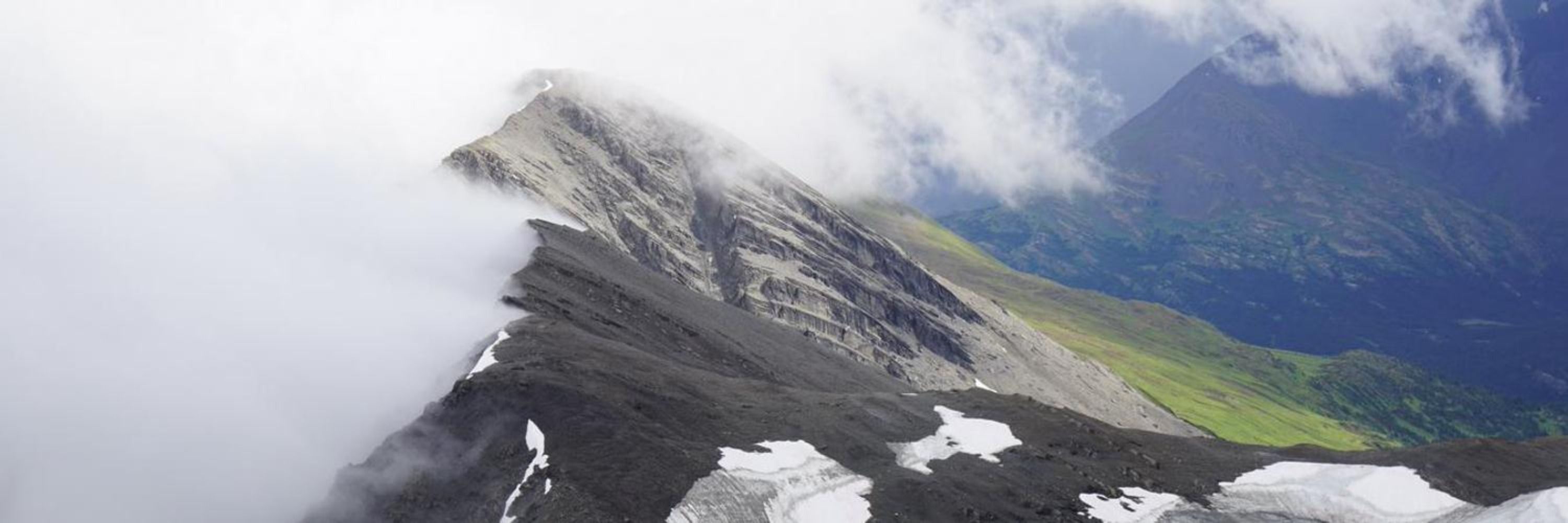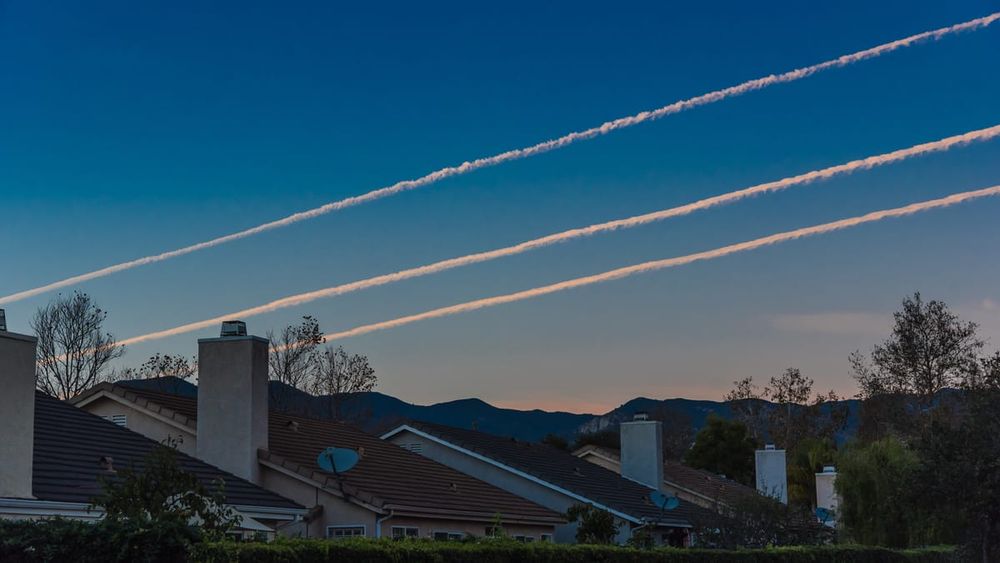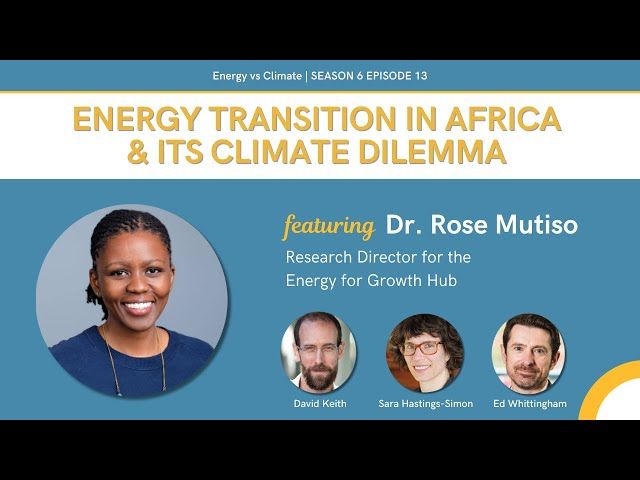
David Keith
@davidkeith.bsky.social
Climate science and technology policy since 1989. Building Climate Systems Engineering at UChicago. Founded Carbon Engineering. Work interferes with my climbing.
Read about me and my work at https://davidkeith.earth/
Read about me and my work at https://davidkeith.earth/
We did approve the first headline, but we did not approve this one...
September 22, 2025 at 7:10 PM
We did approve the first headline, but we did not approve this one...
One can imagine this rule is simple enough to be useful in international negotiations over sunlight reflection.
My prior NYT op-ed's on this topic: davidkeith.earth/the..., and www.nytimes.com/2008...
4/4
My prior NYT op-ed's on this topic: davidkeith.earth/the..., and www.nytimes.com/2008...
4/4

The New York Times: What’s the Least Bad Way to Cool the Planet? - David Keith
By David Keith How to cool the planet? The energy infrastructure that powers our civilization must be rebuilt, replacing fossil fuels with carbon-free sources such as solar or nuclear. But even then, zeroing out emissions will not cool the planet. This is a direct consequence of the single most important fact about climate change:...
davidkeith.earth
September 21, 2025 at 5:16 PM
One can imagine this rule is simple enough to be useful in international negotiations over sunlight reflection.
My prior NYT op-ed's on this topic: davidkeith.earth/the..., and www.nytimes.com/2008...
4/4
My prior NYT op-ed's on this topic: davidkeith.earth/the..., and www.nytimes.com/2008...
4/4
First, it ties use of SRM to clean up of pollution, and since this pollution is mostly from burning fossil fuels, this is roughly equivalent to tying use of SRM to cuts in fossil fuels; and second, it provides a non-arbitrary fixed upper limit on how much SRM can be deployed.
3/4
3/4
September 21, 2025 at 5:16 PM
First, it ties use of SRM to clean up of pollution, and since this pollution is mostly from burning fossil fuels, this is roughly equivalent to tying use of SRM to cuts in fossil fuels; and second, it provides a non-arbitrary fixed upper limit on how much SRM can be deployed.
3/4
3/4
Zeke and I propose a simple rule: limit use of SRM to maintaining Earth’s reflectivity against the decrease in reflectivity that will continue as pollution is cleaned up.
This rule has two useful consequences.
2/4
This rule has two useful consequences.
2/4
September 21, 2025 at 5:15 PM
Zeke and I propose a simple rule: limit use of SRM to maintaining Earth’s reflectivity against the decrease in reflectivity that will continue as pollution is cleaned up.
This rule has two useful consequences.
2/4
This rule has two useful consequences.
2/4
I am particularly excited about research that explores the risks and uncertainties of hemispherically balanced deployment of stratospheric sulfates, which add cooling at no more than 0.1 degrees per decade for half a century.
July 22, 2025 at 4:48 PM
I am particularly excited about research that explores the risks and uncertainties of hemispherically balanced deployment of stratospheric sulfates, which add cooling at no more than 0.1 degrees per decade for half a century.
And Holly Buck is a powerful writer on geoengineering. See her book "After Geoengineering." Also, her article "The Rise of Green MAGA" is essential reading for the current political environment: www.compactmag.com/a...
Here's Holly on our pod: www.energyvsclimate....
Here's Holly on our pod: www.energyvsclimate....

The Rise of Green MAGA
Geoengineering is “probably as dangerous to us as climate change itself,” Robert F. Kennedy Jr. stated on his podcast last year.
www.compactmag.com
June 18, 2025 at 2:15 PM
And Holly Buck is a powerful writer on geoengineering. See her book "After Geoengineering." Also, her article "The Rise of Green MAGA" is essential reading for the current political environment: www.compactmag.com/a...
Here's Holly on our pod: www.energyvsclimate....
Here's Holly on our pod: www.energyvsclimate....
Rose Mutiso is a great rising voice in the climate and energy space, and I recently spoke with her about the energy transition in Africa on my Energy vs Climate podcast: youtu.be/DjOcyXPxaoc...
Rose's Ted Talk on the subject is also a must watch: youtu.be/77HUdJ7Tij0...
Rose's Ted Talk on the subject is also a must watch: youtu.be/77HUdJ7Tij0...

Energy Transition in Africa & its Climate Dilemma with Dr. Rose Mutiso
*David & Ed chat with Dr. Rose Mutiso (about the tension between energy, climate, and economic development in Africa and the global south.*
They touch on many topics to do with sub-Saharan Africa, including energy production and consumption, electricity and power grids, and the vast economic inequ
youtu.be
June 18, 2025 at 2:15 PM
Rose Mutiso is a great rising voice in the climate and energy space, and I recently spoke with her about the energy transition in Africa on my Energy vs Climate podcast: youtu.be/DjOcyXPxaoc...
Rose's Ted Talk on the subject is also a must watch: youtu.be/77HUdJ7Tij0...
Rose's Ted Talk on the subject is also a must watch: youtu.be/77HUdJ7Tij0...
The conversation focused on SRM in context, alongside carbon removal, adaptation, and emissions cuts. We need to evaluate how they might work together in our messy world, a topic that's on my mind every day as I write a book that tackles this question.
June 18, 2025 at 2:15 PM
The conversation focused on SRM in context, alongside carbon removal, adaptation, and emissions cuts. We need to evaluate how they might work together in our messy world, a topic that's on my mind every day as I write a book that tackles this question.
Canada can’t just sit on the sidelines regarding SRM research and governance. Ignoring SRM means others will make the decisions. Here’s an old op-ed Ted Parson and I wrote for the Globe & Mail that makes this point:
davidkeith.earth/the... (not our headline)
davidkeith.earth/the... (not our headline)

The Globe and Mail: Solar geoengineering – Science fiction – or saviour? - David Keith
At the time of this post, David Keith was a professor in Harvard's Schools of Engineering and of Public Policy, and founder at Carbon Engineering. Edward Parson is professor and co-director of the Emmett Institute on Climate Change and the Environment at UCLA, and senior research associate at the Centre for Global Studies,...
davidkeith.earth
June 4, 2025 at 2:06 PM
Canada can’t just sit on the sidelines regarding SRM research and governance. Ignoring SRM means others will make the decisions. Here’s an old op-ed Ted Parson and I wrote for the Globe & Mail that makes this point:
davidkeith.earth/the... (not our headline)
davidkeith.earth/the... (not our headline)
Lisa Dilling leads SRM research at the Environmental Defense Fund and has written about the need to explore the potential impacts of SRM before any sort of deployment is considered:
blogs.edf.org/climat...
blogs.edf.org/climat...

Why it’s time to explore the potential impacts of Solar Radiation Modification
The impacts from climate change will continue to escalate in the years ahead, and a growing number of scientists, philanthropies and companies have become interested in strategies to lower global temperatures more quickly. One of the options is reflecting some sunlight back into space. Because
blogs.edf.org
June 4, 2025 at 2:06 PM
Lisa Dilling leads SRM research at the Environmental Defense Fund and has written about the need to explore the potential impacts of SRM before any sort of deployment is considered:
blogs.edf.org/climat...
blogs.edf.org/climat...
This conversation grew out of meetings that several Canadian SRM leaders, including Ted Parson and Doug MacMartin, had with Canadian government officials and NGOs about a possible SRM research program in Canada.
June 4, 2025 at 2:06 PM
This conversation grew out of meetings that several Canadian SRM leaders, including Ted Parson and Doug MacMartin, had with Canadian government officials and NGOs about a possible SRM research program in Canada.
See, the concluding section of the article, "If not a negotiated moratorium, then what?” for practical thinking on how governance can move forward without halting research progress.
May 22, 2025 at 3:57 PM
See, the concluding section of the article, "If not a negotiated moratorium, then what?” for practical thinking on how governance can move forward without halting research progress.
States can begin research programs while making it clear that deployment is premature. This allows for bottom-up norm setting and transparency without the risks of a negotiated moratorium.
May 22, 2025 at 3:57 PM
States can begin research programs while making it clear that deployment is premature. This allows for bottom-up norm setting and transparency without the risks of a negotiated moratorium.
Many people, including (sometimes) me, have argued that a moratorium could provide a safe space under which research can flourish. But a moratorium would not magically create research. And as Sue and Dan point out, there are many ways in which a moratorium might inhibit research.
May 22, 2025 at 3:56 PM
Many people, including (sometimes) me, have argued that a moratorium could provide a safe space under which research can flourish. But a moratorium would not magically create research. And as Sue and Dan point out, there are many ways in which a moratorium might inhibit research.

